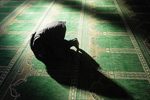Adoption of orphan children became a phenomenon in recent days, but how did the religion of Islam treat problems of adoption 1400 years ago before it happens? Let us read………….
Allah Almighty says in the holy Qur’an: (nor has He made your adopted sons your real sons. That is but your saying with your mouths. But Allah says the truth, and He guides to the Right Way* Call them (adopted sons) by the names of their fathers, that is more just with Allah){ Sûrat Al-Ahzâb -The Confederates – verse4-5}, in this verse Allah Almighty orders us to call the adopted sons by their real father’s name not by the name of the new father.
What is adoption?
In western countries as a definition, adoption is the legal process by which a person becomes a lawful member of a family different from their birth family. Once a final order of adoption has been ruled by a court of law, the adoptive parents gain the same rights and responsibilities as parents whose children are born to them; subsequently, an adopted child gains the same rights as birth children in regard to inheritance, child support, and other legal matters.
In most U.S. jurisdictions, at the time the adoption is finalized, the adopted child’s name is legally changed, and the court orders the issuance of a new, amended birth certificate.
But what is incest?
Incest may be defined as any sexual activity between closely related persons, normally within the immediate family, which is either illegal or socially taboo.
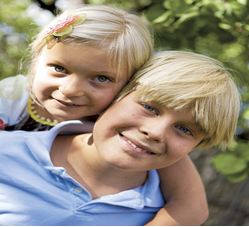
Depending on the culture and jurisdiction, the type of sexual activity and the nature of the relationship between persons that constitutes a breach of law or social taboo varies. Some societies consider it to include “blood relatives”, whereas others further include those related by adoption or marriage. Others also may consider it to include only those who live in the same household, or who belong to the same clan or lineage.
Associated risks of incest
Studies confirmed that incest produce children with special needs. Some geneticists put the risk of producing a disabled child as high as 50%, but this is hotly debated. Opponents of the incest ban also argue there are double standards, noting that no-one would ban those with hereditary diseases from reproducing. So that, by law many European countries make the intra- families is illegal, but Sweden is the only country in Europe which allows marriage between siblings who share a parent.
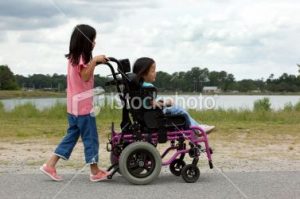
Disabled children may be a result from practicing incest
Studies say that the significant damage from incest is psychological that is the emotional connection. The surge in nontraditional families increases the risk of disruption. “There are more incidents of incest reported in stepfamilies than in biological families,” said observes Lynn Reynolds of the Institute against Social Violence, in Briarcliff Manor, New York.
Adopted children may be particularly vulnerable; no matter how well they are treated by their adoptive families, they frequently struggle with feelings of abandonment by their biological parents.
Does adoption lead to incest?
According to the western way of adoption, the adopted son is called by his or her new father’s name so that the adopted child may meet his or her sister and brother without knowing each other’s so that they can marry each other’s which is exactly the incest.
In England brother and sister Parted-at-birth but they married
A pair of twins who were adopted by separate families as babies got married without knowing they were brother and sister.
The court annulled the couple’s union after they discovered their true relationship. A British lord said that the case showed how important it was for children to be able to find out about their biological parents.
He added “And if you don’t know you are biologically related to someone, you may become attracted to them and tragedies like this may occur.”
In Germany, a brother may marry his sister
Patrick Stuebing and Susan Karolewski are siblings who were separated by adoption, the siblings met for the first time in 2000 when Patrick tracked down his birth mother and the younger sister he had never met. Now they are married and have four children.
The older two children are suffering from severe physical and mental disabilities and the third child was born with a heart condition. All three were placed in foster care but only one of the four children is a healthy child
In Germany many say that the practice of incest does harm others. Children born as a result of incest are at an increased risk of developing severe mental and physical disabilities
“This couple is not harming anyone. It is discrimination. And besides, we must not forget that every child is so valuable,” said Dr Endrik Wilhelm The couple’s lawyer.
It is worth to mention that incest in Germany is forbidden by law.
It is seen as a deterrent and helps prevent children being born with the disabilities that result from genetic defects and inbreeding.
Vietnam to end US adoption program
In 2008 The Vietnamese government decided to end an adoption agreement with the US due to corruption.
A report from the US embassy in Hanoi cited cases in which children had allegedly been sold and families pressured to give up their babies.
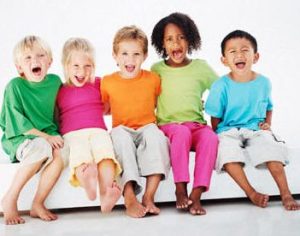
The report said the embassy had received “credible” accounts that some adoption agencies gave $10,000 for each child that was referred. It also detailed brokers travelling to villages to look for babies. The report was drawn up after US officials noticed a rapid increase in the number of “abandoned” babies offered for adoption.
In Russia
In April 2010, The Russian Foreign Ministry announced that it would suspend all adoptions of Russian children by Americans after an adoptive mother in Tennessee sent her 7-year-old son back to Moscow alone.
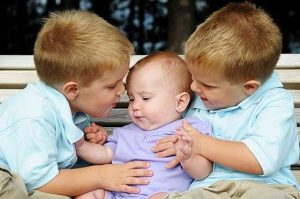
The mother said the boy’s emotional problems had overwhelmed her. “After giving my best to this child, I am sorry to say that for the safety of my family, friends and myself, I no longer wish to parent this child,” she wrote in a note placed in his knapsack.
Associated risks of adoption
A study published in the Archives of Pediatric and Adolescent Medicine, found that adolescents adopted as infants are twice as likely to have behavioral disorders as those who are not adopted. These behavioral disorders include ADHD and oppositional defiant disorder.
The study followed 514 internationally adopted adolescents, 178 domestically adopted adolescents and 540 non-adopted adolescents, aged 11 to 21
Lead researcher, Margaret A. Keyes, Ph.D., of the University of Minnesota, Minneapolis and her colleagues assessed the adolescents using child and parent reports of attention-deficit/hyperactivity, oppositional defiant, conduct, major depressive and separation anxiety disorders, teacher reports of psychological health, in-depth psychological interviews and contact with mental health professionals. Testing was done when the adolescents were on average, 15 years of age.
“We found that most of the adolescents – adopted and non-adopted – were
overwhelmingly psychologically healthy,” Keyes says. But Keyes also found what she calls “an adoption effect.” Approximately seven out of
every 100 non-adopted teens had a diagnosis of ADHD, a number that rose to 14 or 15 for adopted youngsters.
Another study was published in the Journal of Child Psychology and Psychiatry, and Allied Disciplines to investigate the risk of developing schizophrenia in adoptees and in non-adoptees.
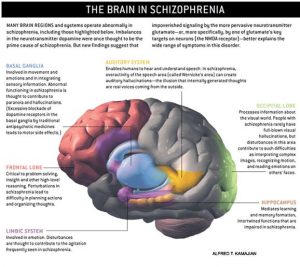
The study base on utilizing data from the Danish Civil Registration System, researchers established a population of 1.06 million persons resident in Denmark before the age of 15, whose legal mother lived in Denmark at the child’s birth. Inter-country adoptees were identified as children born abroad.
As a result, researchers found that Inter-country adoptees had an increased relative risk of developing schizophrenia compared to native Danes. The increased risk was independent of age at onset and age at, or region of, adoption, and was not attributable to mental illness in a foster parent, the foster parent’s age, or to urbanization.
Adoption and incest in Islam
From all of the above we can conclude many pitfalls of adoption and incest according to the western application:
1- Adoptees are named with the name of their new fathers so that they may meet with their relatives and fall in love with them and the brother may marry his sister that causes severe social and medical problems.
2- Overseas adoption may lead to very harmful behavior by gangs who may get poor children and resell them in another country.
3- Risk factor is not limited to adoption but it extends to the dangerous of incest as some people in western countries are calling to legitimate the marriage of relatives in the same family which is totally forbidden in Islam.
4- Resulted children from incest have a high risk to be infected by many diseases such as schizophrenia, disability and many psychological diseases.
Hence we have to understand the miracle in the verse when Allah Almighty ordered the believers 1400 years ago to name the adopted sons by the name of their real fathers as He Almighty says : (Call them (adopted sons) by the names of their fathers, that is more just with Allah){ Sûrat Al-Ahzâb -The Confederates – verse5}.
Also He Almighty strictly prohibits incest as relatives may marry each other’s which happens in western societies. He Almighty says: (Forbidden to you (for marriage) are: your mothers, your daughters, your sisters, your father’s sisters, your mother’s sisters, your brother’s daughters, your sister’s daughters, your foster mother who gave you suck, your foster milk suckling sisters, your wives’ mothers, your step daughters under your guardianship, born of your wives to whom you have gone in – but there is no sin on you if you have not gone in them (to marry their daughters), – the wives of your sons who (spring) from your own loins, and two sisters in wedlock at the same time, except for what has already passed; verily, Allah is Oft Forgiving, Most Merciful.){ Sûrat An-Nisâ’- The Women -verse23}.
Thanks Allah for the blessing of Islam
——————————
By: Abduldaem Al-Kaheel
References:
- http://resources.lawinfo.com/en/Legal-FAQs/Adoption/Federal/what-is-adoption.html
- http://www.incest.com.au/
- http://news.bbc.co.uk/2/hi/6424937.stm
- http://www.dailymail.co.uk/femail/article-439288/Forbidden-love-brother-sister.html
- http://news.bbc.co.uk/2/hi/7182817.stm
- http://news.bbc.co.uk/2/hi/6424337.stm
- http://news.bbc.co.uk/2/hi/7371862.stm
- http://www.time.com/time/magazine/article/0,9171,976395,00.html
- http://www.healthcentral.com/adhd/c/57718/27714/adoptees-higher-risk
- http://www.schizophrenia.com/images/schizophrenia_brain_large.gif
- http://ukpmc.ac.uk/abstract/MED/18030684;jsessionid=FB03F053EE28757C9D623D 30D0EC083D.jvm1
http://roomfordebate.blogs.nytimes.com/2010/04/15/how-to-prevent-adoption-disasters/



